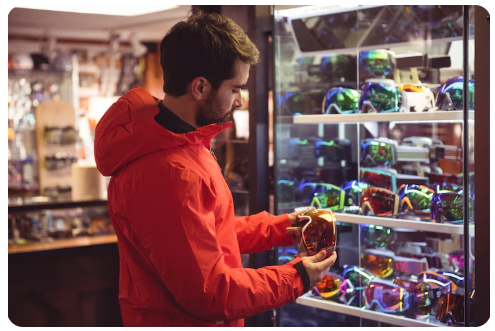For many enthusiasts, a video game is more than just software; it is a cultural artifact, a source of nostalgia, and a piece of history. The pursuit of rare, limited-edition, or culturally significant items—often termed “legendary collectibles”—is a core part of the gaming hobby.
The brick-and-mortar video games store, whether an international chain or an independent local shop, plays a crucial and often irreplaceable role in bringing these coveted items from manufacturers and private collections directly into the hands of fans.
They act as curated physical hubs that transform the often-impersonal digital transaction into a tactile, rewarding experience.
Serving as the Exclusive Retail Channel for Limited Editions
One of the primary roles of a video games store is to serve as the official, exclusive retailer for highly anticipated limited and collector’s editions.
Publishers frequently partner with specific retail chains to offer unique, numbered versions of new games, often bundled with legendary items like high-quality statues, art books, steelbooks, or functional replicas of in-game gear.
These physical storefronts manage the crucial pre-order process, guaranteeing a secure, verified avenue for collectors to acquire items that are intentionally scarce from day one.
Curating and Stocking Vintage and Retro Gems
Beyond new releases, the local video games store is often a treasure trove of retro gaming history. These shops actively buy, trade, and authenticate used games and merchandise, bringing back rare titles, original console packaging, and peripherals that have become sought-after collectibles.
Unlike massive online marketplaces, these stores employ staff with deep historical knowledge who can vet the authenticity and condition of vintage items, ensuring collectors purchase genuine, quality pieces of gaming heritage.
Providing a Physical Space for Inspection and Authentication
For high-value, legendary collectibles, the ability to physically inspect the item before purchase is paramount. A video games store allows collectors to examine the condition of packaging, verify the integrity of a limited-edition statue, or check the working order of a vintage console.
This hands-on opportunity minimizes the risk of receiving damaged or inauthentic goods, a common concern when dealing with online secondary markets. This trust factor is vital for expensive, one-of-a-kind items.
Creating a Hub for Trading and Community Sourcing
Local stores foster a physical community where collectors can meet, discuss their passions, and often trade or sell items directly to the shop or to other enthusiasts. This community function is essential for the flow of collectibles.
When a collector decides to downsize their collection, the store becomes the trusted intermediary, allowing rare items to be swiftly and securely recirculated back into the collector’s market, often fetching a fair price based on informed valuation.
Hosting Midnight Launches and Special Events
Retailers often host events for major game releases, turning the act of purchase into a communal celebration.
These midnight launches frequently feature exclusive, event-only merchandise, signed copies, or unique promotional items that instantly become legendary collectibles due to their limited nature and association with a memorable community experience. These special items add a layer of sentimental value that cannot be replicated by a digital download.
Offering Expert Knowledge for Informed Collecting
The staff at dedicated gaming stores are typically passionate experts who can provide informed advice on which new items are likely to appreciate in value, the history behind a retro collectible, or tips on proper display and maintenance.
This free consultation helps novice collectors make smart purchasing decisions and guides seasoned enthusiasts toward finding that specific missing piece for their ultimate collection.

